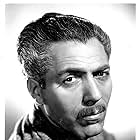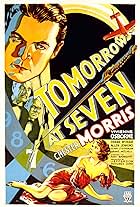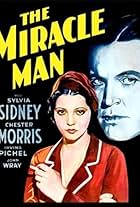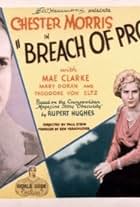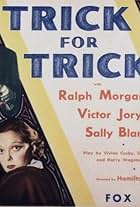Ajouter une intrigue dans votre langueA bomb is hidden on an ocean liner, but nobody on board is aware of its presence.A bomb is hidden on an ocean liner, but nobody on board is aware of its presence.A bomb is hidden on an ocean liner, but nobody on board is aware of its presence.
Photos
Luis Alberni
- Excitable Italian Passenger
- (non crédité)
Mischa Auer
- Klein
- (non crédité)
Stanley Blystone
- Undetermined Secondary Role
- (non crédité)
Leonard Carey
- Hans
- (non crédité)
Elise Cavanna
- Madame Albini's Pianist
- (non crédité)
Arthur Hoyt
- Man with Pet Mice
- (non crédité)
Robert Littlefield
- Rupert
- (non crédité)
Louis Mercier
- Taxicab Driver
- (non crédité)
Geneva Mitchell
- Romantic Woman in Lifeboat
- (non crédité)
J. Carrol Naish
- Bryan
- (non crédité)
Histoire
Le saviez-vous
- AnecdotesGenevieve Tobin went immediately from this film into "Pleasure Cruise" - which was filmed on the same sets.
- GaffesWhen Robert races to the ship, he's wearing a top hat and evening clothes. But when we first see him on board, he's wearing a regular three-piece suit and tie. Since he packed no baggage, where did the change of clothes come from?
Commentaire à la une
Infernal Machine' is a suspense film with a promising set-up. It takes place aboard a moving vehicle (an ocean liner), so we have a sense of the characters surging forward even if the plot is becalmed. Also, there's a clearly-established zero hour - a time bomb is set to go off at midnight - so there ought to be a taut sensation of a race against time. Unfortunately, after the wheels of this premise are trundled into place, the film fizzles out.
Chester Morris plays disaffected intellectual Robert, who has a passion for socialite Elinor (Genevieve Tobin), who is engaged to snobbish banker Spencer (James Bell). Indigent Robert is firmly convinced that he can persuade Elinor to ditch wealthy Spencer, if only she'll just listen to him for a few minutes. Elinor and Spencer have booked passage aboard the S.S. Lucerne, sailing across the Atlantic, with Elinor's aunt as chaperone. Robert is so determined to get Elinor's attention, he stows away aboard the ship.
This leads me to wonder about something. In movies and novels from the days of steamship travel, fictional characters are constantly stowing away aboard ocean liners. They board them easily, they have no difficulty evading the crew and officers, and they seem to obtain easy access to food and drinking water throughout the crossing ... which lasted many days. I really wonder how many people in real life successfully stowed away aboard a transatlantic ship and managed to get through the entire crossing without getting caught.
Anyway, while Robert is hiding in the hold, the captain of the Lucerne receives a radiogram from Scotland Yard. Somebody has hidden a time bomb aboard the ship, and it's set to go off at midnight. In the course of searching the ship for the bomb, the officers discover stowaway Robert. They mistakenly but understandably assume he's the mad bomber. (But why would the bomber stow away aboard a ship he's planning to blow up?)
Now, here's where it gets stupid. Robert is so eager to get some time with Elinor, he falsely confesses to being the bomber. He also agrees to defuse the bomb (at the last possible moment, of course) providing he gets some time alone with Elinor ... specifically, the 50 minutes from 11.10pm until boom-boom time. Robert really doesn't know anything about defusing bombs, but we figure he'll have to learn in a hurry ... and he'll probably do a bang-up job.
Surprisingly, everybody aboard the ship agrees to this idea, except Elinor. One by one, all the hoity-toity passengers on the Lucerne give Elinor high-minded reasons why she should be willing to tryst with a terrorist (as they assume Robert to be). Some of this premise is borrowed from Guy de Maupassant's story 'Ball of Suet', with a similar resolution.
The movie sets up a very intriguing premise, but fails to pay off. The suspense should ratchet upwards as the clock ticks towards midnight. Instead, the movie sinks into implausibility and dodgy motivations.
Chester Morris was probably the best possible choice to star in this uncertain film. Morris was handsome enough to be acceptable as a standard leading man, but there was a harshness and a coarseness to his features which made him plausible as a villiain. We find it very plausible that the passengers and officers of the Lucerne would believe that this man is a mad bomber, even while we accept that he isn't.
There are a few good character performances along the way, notably from the very underrated Arthur Hohl as the captain of the Lucerne. Gawky actress Elise Cavanna is good as one of the passengers. A 'surprise' near the end of the film is a lot more obvious than it thinks it is. On the way to that ending, at least we get to see some impressive set designs. I'll rate this movie 6 out of 10. Unfortunately, all the best things in this movie are in the early scenes: 'Infernal Machine' gets steadily worse as it ticks towards zero hour.
Chester Morris plays disaffected intellectual Robert, who has a passion for socialite Elinor (Genevieve Tobin), who is engaged to snobbish banker Spencer (James Bell). Indigent Robert is firmly convinced that he can persuade Elinor to ditch wealthy Spencer, if only she'll just listen to him for a few minutes. Elinor and Spencer have booked passage aboard the S.S. Lucerne, sailing across the Atlantic, with Elinor's aunt as chaperone. Robert is so determined to get Elinor's attention, he stows away aboard the ship.
This leads me to wonder about something. In movies and novels from the days of steamship travel, fictional characters are constantly stowing away aboard ocean liners. They board them easily, they have no difficulty evading the crew and officers, and they seem to obtain easy access to food and drinking water throughout the crossing ... which lasted many days. I really wonder how many people in real life successfully stowed away aboard a transatlantic ship and managed to get through the entire crossing without getting caught.
Anyway, while Robert is hiding in the hold, the captain of the Lucerne receives a radiogram from Scotland Yard. Somebody has hidden a time bomb aboard the ship, and it's set to go off at midnight. In the course of searching the ship for the bomb, the officers discover stowaway Robert. They mistakenly but understandably assume he's the mad bomber. (But why would the bomber stow away aboard a ship he's planning to blow up?)
Now, here's where it gets stupid. Robert is so eager to get some time with Elinor, he falsely confesses to being the bomber. He also agrees to defuse the bomb (at the last possible moment, of course) providing he gets some time alone with Elinor ... specifically, the 50 minutes from 11.10pm until boom-boom time. Robert really doesn't know anything about defusing bombs, but we figure he'll have to learn in a hurry ... and he'll probably do a bang-up job.
Surprisingly, everybody aboard the ship agrees to this idea, except Elinor. One by one, all the hoity-toity passengers on the Lucerne give Elinor high-minded reasons why she should be willing to tryst with a terrorist (as they assume Robert to be). Some of this premise is borrowed from Guy de Maupassant's story 'Ball of Suet', with a similar resolution.
The movie sets up a very intriguing premise, but fails to pay off. The suspense should ratchet upwards as the clock ticks towards midnight. Instead, the movie sinks into implausibility and dodgy motivations.
Chester Morris was probably the best possible choice to star in this uncertain film. Morris was handsome enough to be acceptable as a standard leading man, but there was a harshness and a coarseness to his features which made him plausible as a villiain. We find it very plausible that the passengers and officers of the Lucerne would believe that this man is a mad bomber, even while we accept that he isn't.
There are a few good character performances along the way, notably from the very underrated Arthur Hohl as the captain of the Lucerne. Gawky actress Elise Cavanna is good as one of the passengers. A 'surprise' near the end of the film is a lot more obvious than it thinks it is. On the way to that ending, at least we get to see some impressive set designs. I'll rate this movie 6 out of 10. Unfortunately, all the best things in this movie are in the early scenes: 'Infernal Machine' gets steadily worse as it ticks towards zero hour.
- F Gwynplaine MacIntyre
- 2 juil. 2004
- Permalien
Meilleurs choix
Connectez-vous pour évaluer et suivre la liste de favoris afin de recevoir des recommandations personnalisées
Détails
- Durée1 heure 5 minutes
- Couleur
- Rapport de forme
- 1.37 : 1
Contribuer à cette page
Suggérer une modification ou ajouter du contenu manquant

Lacune principale
By what name was La machine infernale (1933) officially released in Canada in English?
Répondre
















